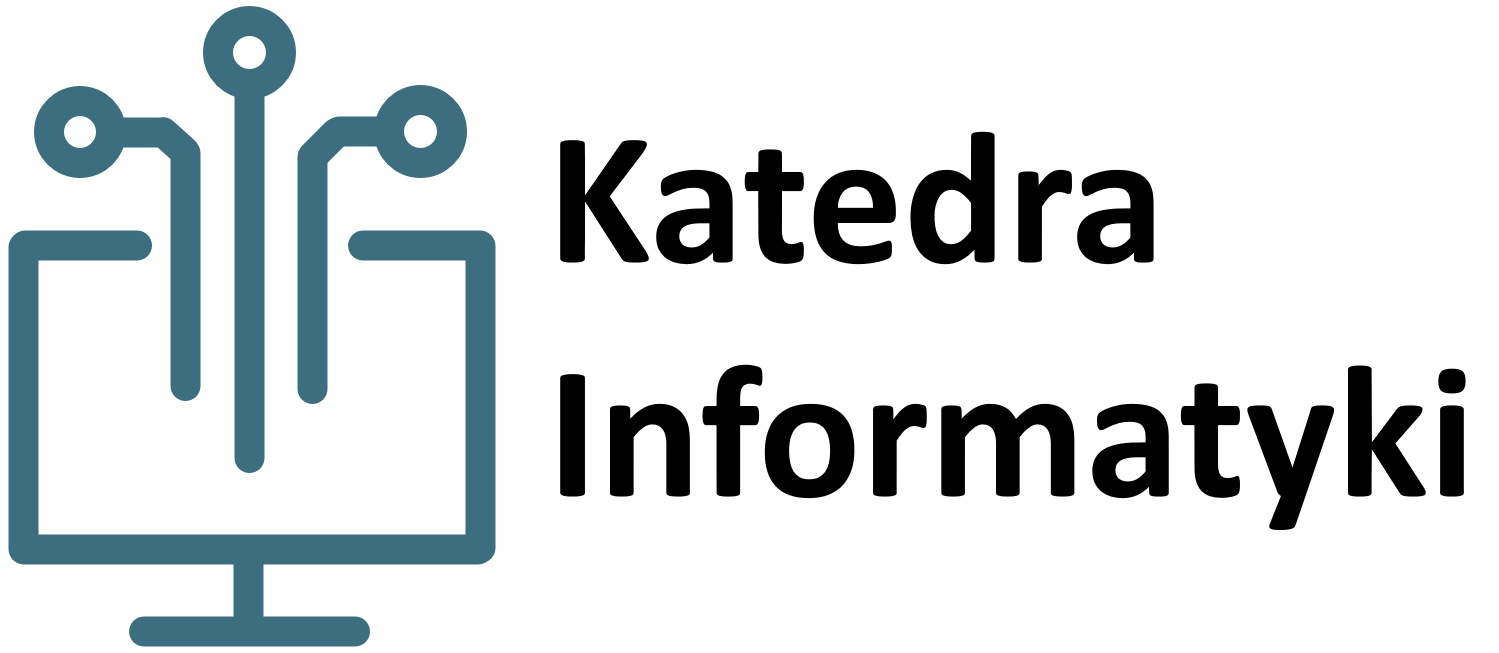Badania prowadzone w Katedrze Informatyki
Badania prowadzone w Katedrze Informatyki dotyczą bardzo ważnych dzienin informatyki i są realizowane w pięciu głównych kierunkach:
- przetwarzanie równoległe i rozproszone, klastry i technologie chmurowe,
- metody komputerowe w ekonomii,
- zaawansowane multimedialne techniki biometryczne i uczenie maszynowe,
- projektowanie i budowanie inżynierskich systemów symulacyjnych,
- systemy optymalizacyjne i wspomagające podejmowanie decyzji.
W dziedzinie obliczeń równoległych i rozproszonych prowadzenie badań umożliwia efektywne wykorzystanie technologii klastrowych i gridowych oraz chmur obliczeniowych. Aplikacje obejmują zaawansowane portale komputerowe, wirtualne laboratoria, interaktywne systemy symulacyjne itp. Innym obszarem badań jest opracowanie metod efektywnego wykorzystania zaawansowanych procesorów wielordzeniowych i architektur hybrydowych które umożliwiają zwiększenie mocy obliczeniowej i optymalizację zapotrzebowania na energię. Przykładem tych trendów są procesory graficzne GPU i akceleratory INTEL Xeon Phi - architektury wielordzeniowe, które umożliwiają znaczny wzrost wydajności kodu równoległego. Prowadzone są badania sieci optycznych, w szczególności elastycznych sieci optycznych i ich integracji z bezprzewodowymi sieciami dostępowymi. Badania koncentrują się na warstwie protokołu, ze szczególnym uwzględnieniem inżynierii ruchu oraz wydajnych i optymalnych algorytmów graficznych mających zastosowanie do routingu i ochrony połączeń optycznych.
Kolejna dziedzina badań dotyczy modelowania i optymalizacji wielokryterialnej procesów w ekonomii, a także zastosowanie metod statystycznych i teorii zbiorów rozmytych do rozwiązywania problemów związanych z komputerowym podejmowaniem decyzji. Prowadzone są badania m.in. w zakresie optymalizacji inwestycji w warunkach niepewności i rozwiązywania problemów logistycznych. Opracowywane jest specjalistyczne oprogramowanie w celu rozwiązania wyżej wymienionych problemów.
W przypadku zaawansowanych multimediów, technik biometrycznych i uczenia maszynowego badania koncentrują się przede wszystkim w sprawie metod automatycznej analizy, przetwarzania i odpowiedniego kodowania cyfrowych sygnałów audio i wideo, pod względem ich zastosowania w systemach biometrycznych, systemach sterowania, systemach lokalizacji, liczeniu i klasyfikowaniu obiektów. Przeprowadzone badania koncentrują się na najnowszych rozwiązaniach biometrycznych (w tym na wykorzystaniu różnych widm spektrum światła), w sprawie systemów analizujących obrazy satelitarne, w systemach kontroli impulsów mózgowych, w bioinżynierii i komponentach robotyki. Ważnym aspektem rozpoznawania obrazów jest zastosowanie najnowszych algorytmów w dziedzinie sieci neuronowych, w tym głębokie uczenie się. Całe badania koncentrują się wokół naszego autonomicznego samochodu elektrycznego.
Innym obszarem badań jest opracowanie modułów obliczeniowych do numerycznej symulacji zjawisk fizycznych i procesów technologicznych. Oprogramowanie wykorzystuje adaptacyjną metodę elementów skończonych i jest budowane przy użyciu podejścia obiektowego. Wdrożony pakiet oprogramowania do równoległej implementacji metody elementów skończonych w modelu z pamięcią rozproszoną (z wymianą komunikatów), a także w modelu hybrydowym, łącząc modele z wymianą wiadomości i wielowątkowością. Obecnie oprogramowanie jest dostosowane do środowisk GPU.
Działalność badawcza w zakresie optymalizacji i wspomagania decyzji obejmuje: eksperckie systemy rozmyte w sieciach asynchronicznych - zarządzanie, bazy wiedzy i dystrybucja. Ponadto badaniami jest skuteczność wykorzystania algorytmów genetycznych i struktur neuronowych do wspomagania decyzji oraz optymalizacja wielokryterialna oparta na niepewnej wiedzy i optymalizacji wielokryterialnej w sieci.

